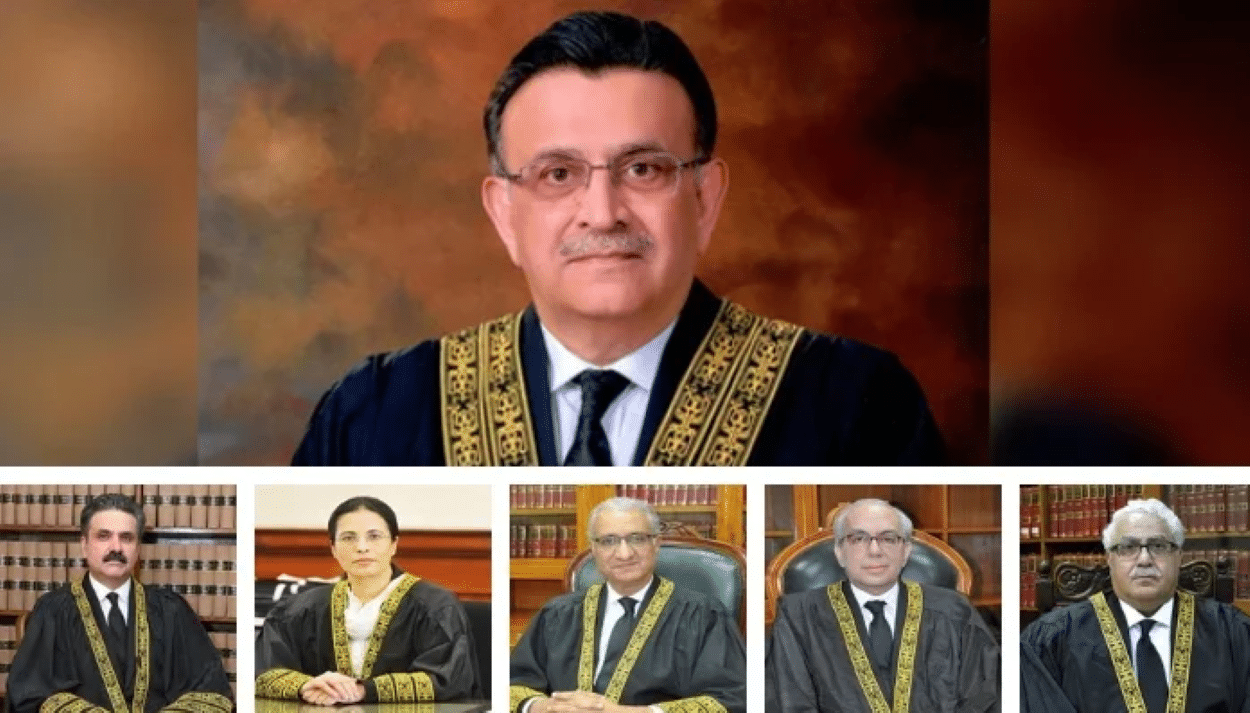The Supreme Court (SC) of Pakistan announced its decision on Wednesday, turning down a petition advocating for a full court to examine the contested military trials involving civilians. This decision was reached by a six-member bench led by Chief Justice of Pakistan (CJP) Umar Ata Bandial and including Justices Ijazul Ahsan, Munib Akhtar, Yahya Afridi, Sayyed Mazahar Ali Akbar Naqvi, and Ayesha A. Malik.
Senior counsel Faisal Siddiqi had forwarded the proposal for forming a full court, though most counsels representing various petitioners were against it. One of the petitioners, Barrister Aitzaz Ahsan, saw this as an effort to strip the court of its “finest moment” in the nation’s judicial history.
The Hearings and Future Implications
During the hearing, Justice Bandial invited Siddiqi to speak and revealed that the concept of a full court had been deliberated among the judges. However, he advised Siddiqi against filing such petitions in the future, citing that previous full courts could not sustain under similar circumstances.
The proceedings also involved an interaction with Attorney General for Pakistan, Mansoor Usman Awan, who assured the court that the 102 suspects in military custody had their dignity, respect, and health taken care of.
As proceedings progress, the separation between the judiciary’s and the legislature’s roles in military courts continues to be a matter of discussion, raising questions about the compatibility of military courts with existing laws.






